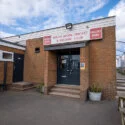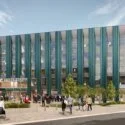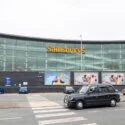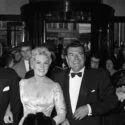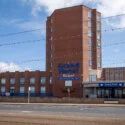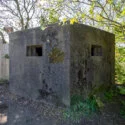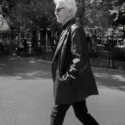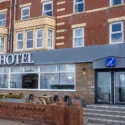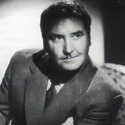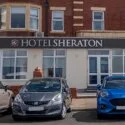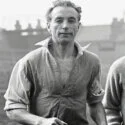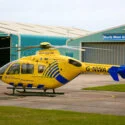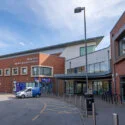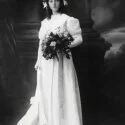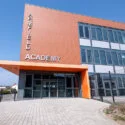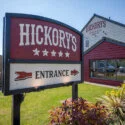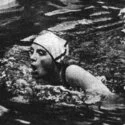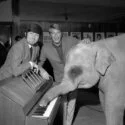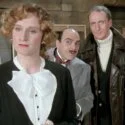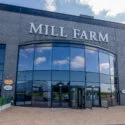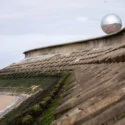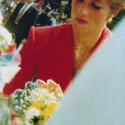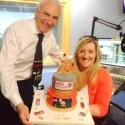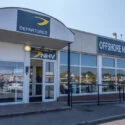THE FOXHALL
Fox Hall stood as one of the earliest known residences in what would later become Blackpool. It was built in the latter part of the 17th century by Edward Tyldesley (1635–1685), most likely around 1670. Edward’s son, Thomas Tyldesley (1657–1714), occupied the house during the years covered by his surviving diary, which remains a valuable record of Lancashire life in the late Stuart period.
At the time, Blackpool was little more than a stretch of windswept coastline, remote and sparsely inhabited. The Tyldesleys’ decision to build there has long been thought deliberate — a choice of seclusion that allowed them to observe their Catholic faith and maintain their political loyalties away from scrutiny during a time of religious tension.
The area itself took its name from a nearby “black pool,” a natural body of dark, peat-stained water draining from Marton Moss. The historian Baines recorded that this pool lay near Fox Hall, and that the property’s name derived from the Tyldesleys keeping a fox chained by the doorway — a claim supported by Thomas Tyldesley’s own diary, which mentions the purchase of a fox cub. Fox Hall was described by 19th-century historian Henry Fishwick as a structure less ancient than commonly assumed. Built by Edward Tyldesley of Morley — son of Sir Thomas Tyldesley, who had been killed at Wigan in 1651 fighting for the Royalists — the house dated from the reign of Charles II. It was originally a three-gabled residence with a small side tower, its thick walls made from sea-shore cobblestones. Above the main entrance was carved the Latin motto Seris factura nepotibus (“Built for future generations”), reflecting Edward Tyldesley’s Royalist allegiance; his name appeared on the proposed list of “Knights of the Royal Oak,” an order intended by Charles II to reward loyal supporters.
A second inscription, Tantum valet amor regiae et patriae (“So great is the love of King and Country”), was set above the south gateway alongside a carving of a pelican feeding her young — a traditional Christian symbol of self-sacrifice. Within the house was a secret chamber known as the “king’s cupboard,” reputedly a priest’s hiding place. Local legend claimed it had been prepared for King James II during the political intrigues of 1690 and 1694, though the king himself never visited.
By the early 18th century, following the 1715 Jacobite rising, Fox Hall had become a discreet meeting place for Catholic recusants. Soon after, the Tyldesley family sold the estate, and the property began a long period of transformation — serving variously as a farmhouse, an inn, and later as a hotel and public house. In 1890 the Foxhall Hotel was purchased by the Seed family, who owned it until February 1964, when it was sold to Catterall & Swarbrick Brewery (C&S Brewery), later part of the Bass Taverns group. During demolition works in December 1990, builders discovered that part of the southern bay facing the sea had once formed a section of the original cobbled building, running west to east.
Despite this last trace of early settlement, the site was cleared in 1991 for modern redevelopment. With its destruction, Blackpool lost not only one of its oldest dwellings but also the last physical link to the Tyldesley family and the small rural settlement from which the modern resort town emerged.
REFLEX
Located in the lively centre of Blackpool, Reflex has become a defining feature of the town’s modern nightlife. More than a nightclub, it serves as a focal point of the resort’s after-dark culture — a venue where nostalgia, music, and movement combine beneath the glow of its brightly coloured dancefloors. Reflex is best known for its distinctive mix of classic pop and dance anthems, a playlist that celebrates the spirit of the 1980s and 1990s. The atmosphere deliberately balances retro fun with high energy, creating a space that feels both familiar and electric. For many visitors, the music evokes memories of earlier decades, while the flashing lights and packed dancefloors capture the vibrancy for which Blackpool has long been famous.
The venue’s position, overlooking the seafront, adds an unmistakable sense of place. From its upper levels, guests can glimpse the beach and promenade — a reminder that even at night, the town’s seaside identity remains ever-present. The combination of coastal views and upbeat soundtracks gives Reflex a quality distinct from nightspots in inland cities, grounding it firmly in Blackpool’s tradition of entertainment and spectacle.
For those seeking a more exclusive experience, the club offers pre-booked VIP booths and drinks packages, allowing groups to enjoy a dedicated space within the venue. These options echo the glamour once associated with Blackpool’s grand dancehalls and theatres, now reinterpreted for a new generation of partygoers. Reflex continues to embody the enduring appeal of Blackpool’s nightlife — a place where music, lights, and laughter carry on the town’s long-standing reputation as the North’s capital of fun.
MA KELLYS
In 2024, the Ma Kelly Group, one of Blackpool’s most recognisable names in live entertainment, acquires The Foxhall and Reflex, two adjoining venues in the heart of the resort’s Central Promenade. The properties had first been listed on the open market in August 2023 with an asking price of £775,000. By January 2024, negotiations had entered an exclusivity period between the vendor and the Ma Kelly’s Group, culminating in the successful purchase. The acquisition marks another significant expansion for the family-run business, bringing the chain’s total number of pubs and bars across the Fylde coast to eight. The venues are set to undergo transformation under the direction of Frankie Kelly, who confirms that the new addition will introduce something distinctive to the Central Pier area.
Speaking about the purchase, Frankie Kelly expresses enthusiasm for the opportunity, explaining that the property’s prominent position on the Promenade made it a long-standing ambition for the group. Plans include creating a dual concept venue: the ground floor will reopen as a Ma Kelly’s bar offering live entertainment seven days a week, while the first floor will become Legends Sports Bar, featuring multiple screens, sports memorabilia, and themed décor. Kelly adds that the intention is to open in time for the summer season, although final details regarding refurbishment costs and completion dates remain under review. Tim Martin, Divisional Director of Fleurets North West, who handled the sale, notes that the property attracted considerable interest. He describes it as “a substantial site on the Promenade,” adding that the buyer’s planned investment and redevelopment represent positive news for this part of Blackpool’s central seafront.
An associated planning application, validated in March, details proposals for the display of seven externally illuminated fascia signs, two non-illuminated projecting signs, and high-level colour-changing vertical lighting along both the Promenade and Foxhall Square elevations of the building. The application lists Frankie Kelly of 44–46 Queens Promenade — the address of Ma Kelly’s Showboat and Uncle Tom’s Sports Bar — as the applicant, indicating early preparation for a rapid turnaround once the sale was finalised. The purchase links the historic Foxhall site, once among the earliest developed areas of Blackpool, with one of the town’s most contemporary entertainment brands. Through the Ma Kelly’s Group, a venue long associated with music, nightlife, and the evolution of the Promenade is set to continue its story — blending the spirit of Blackpool’s past with its enduring appetite for performance and leisure.
There are more Ma Kellys venues on the Fylde coast, one of which is on the timeline called Ma Kellys Cabaret Showboat.
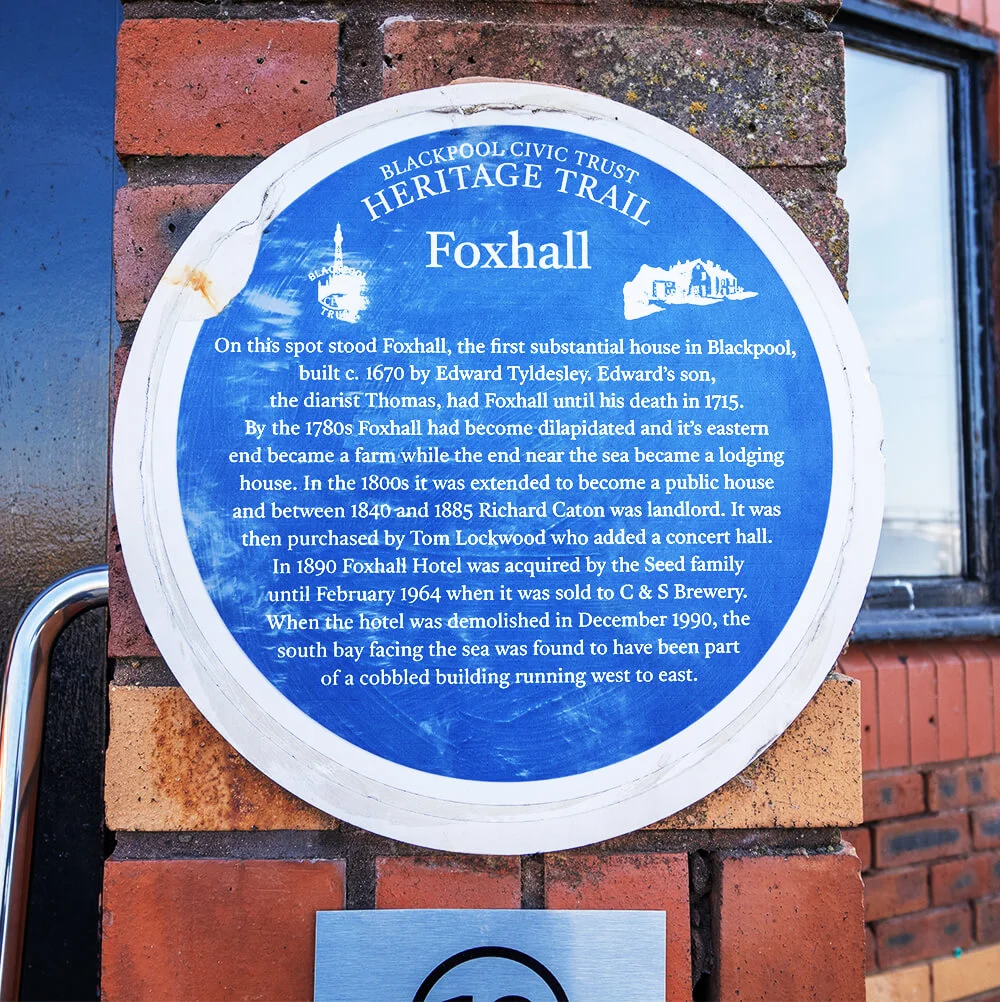
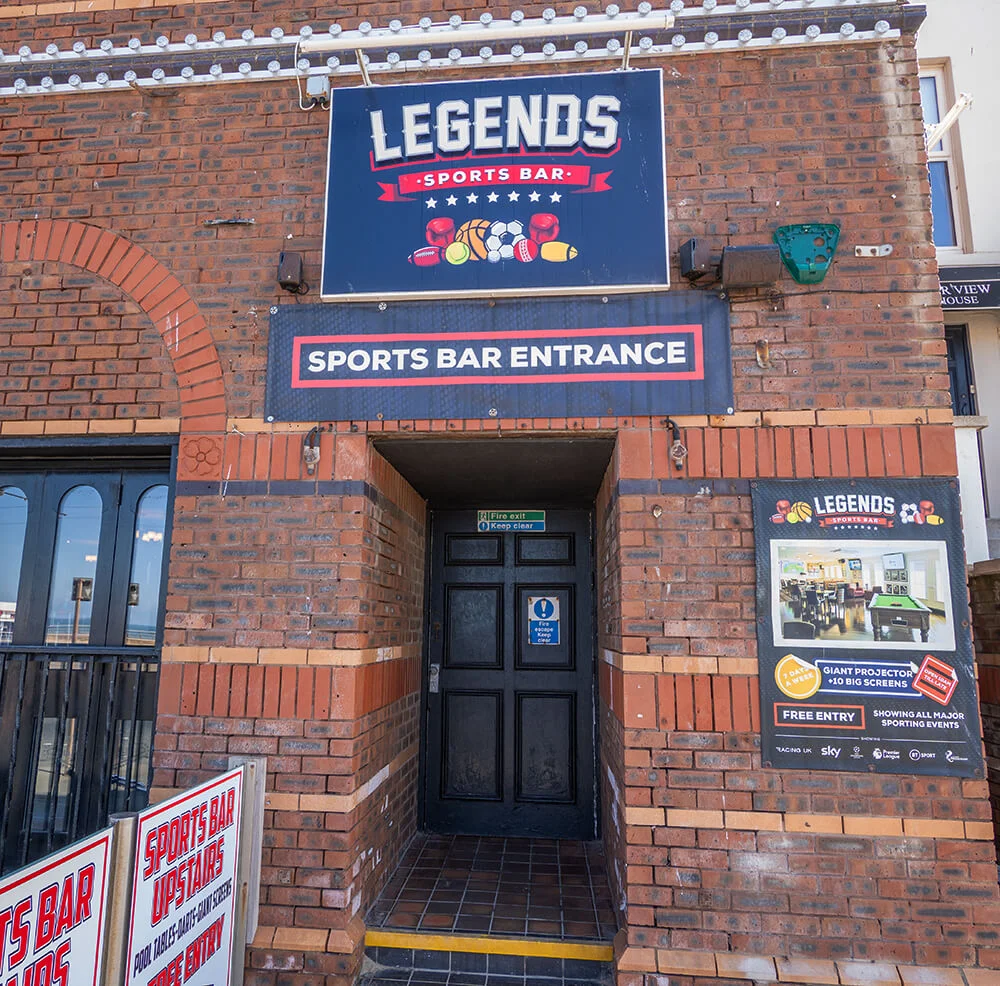
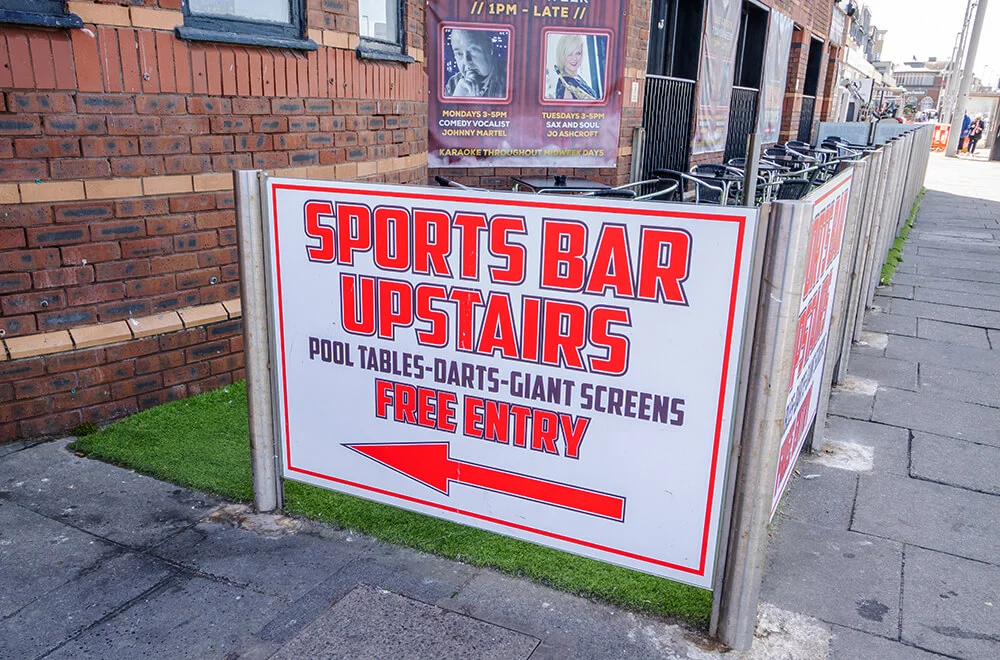
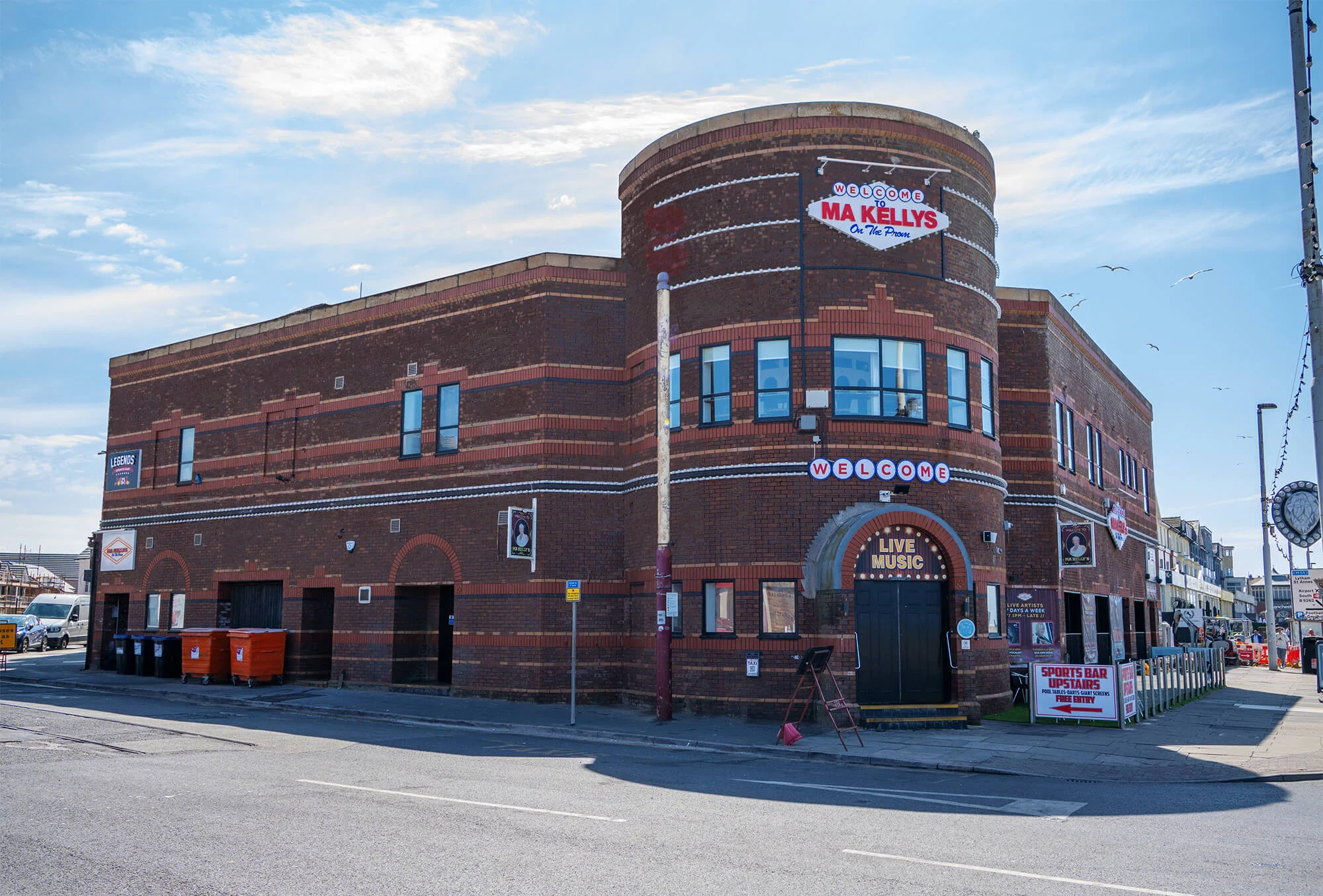
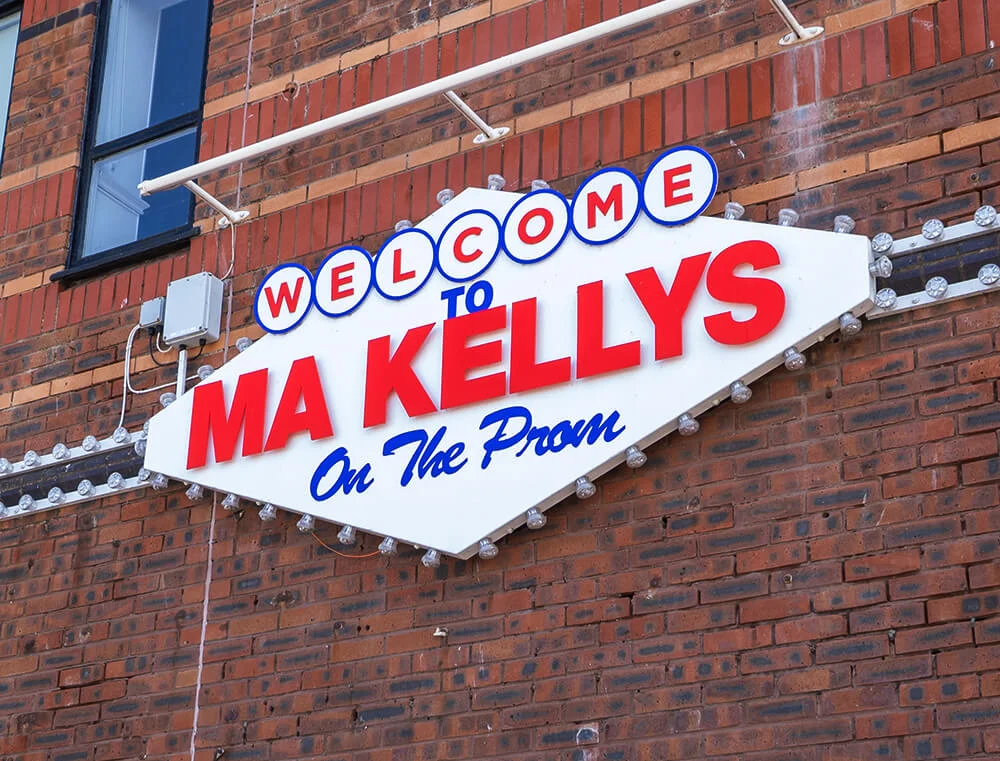
Images by © Deeper Blue Marketing & Design Ltd

